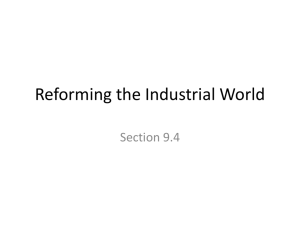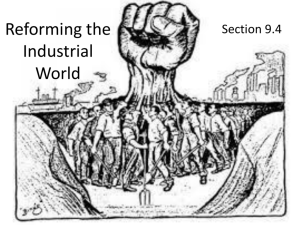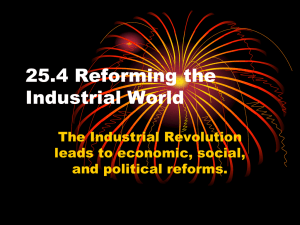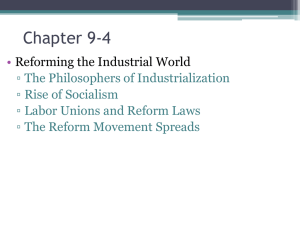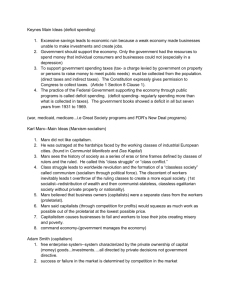Laissez-faire capitalism
advertisement
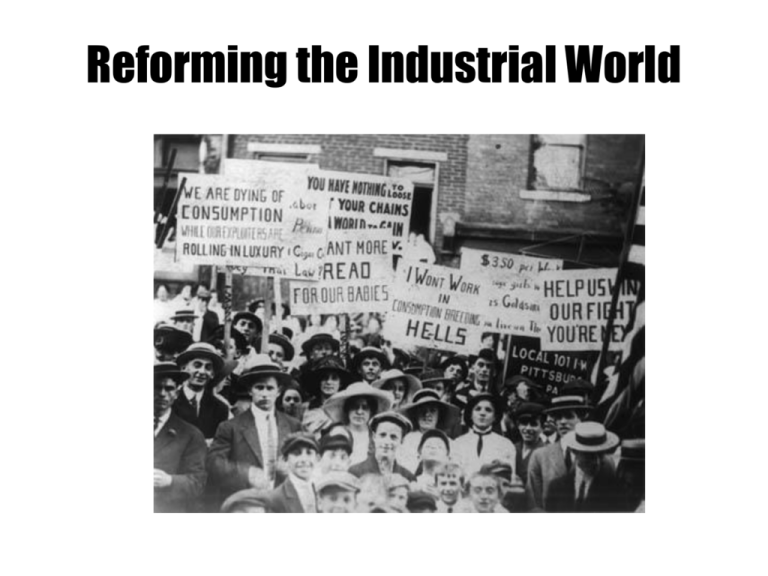
Reforming the Industrial World Capitalism • An economic system in which businesses and industry are privately owned and money is invested in business to make a profit. – Privately owned = individuals rather than the government • Laissez-faire capitalism – government should allow free trade (free market system) – Belief that no government interference in business as the best way for the economy to prosper Adam Smith • Wrote The Wealth of Nations (1776) – Economic freedom = economic progress – Government should not interfere – Natural laws of economics • People work for their own good • Competition forces people to make a better product • Supply and demand - enough goods produced at the lowest price to meet demand – Government should not help the poor because it upsets the free market system and lowers profits. What is the economic system of the United States? Capitalism The Rise of Socialism • Economic system in which the factors of production are owned by the public and operated for the welfare of all. – Factors of production – what is need to produce goods – Public = government/society (democratic control) Socialism • Grew out of concern for social justice • Government should plan the economy, NOT depend on free market system • Government control of factories, railroads, mines, and other key industries would end poverty and promote equality • Public ownership would help workers who were at mercy of employers Marxism: Radical Socialism • Karl Marx writes The Communist Manifesto – Human society has always been divided into warring classes: • The haves and the have-nots The bourgeoisie (owners and bosses) vs The proletariat (workers) – Believed the Industrial Revolution had enriched the wealthy and impoverished the poor – Predicted that workers would overthrow the owners The Future According to Marx • • • • Proletariat would revolt and seize factories Workers would bring economic equality to all Workers would control government Eventually government would disappear (not needed) and a classless society would develop • This classless society he called communism – a form of complete socialism in which the people own the means of production. – Private property does not exist – All goods and services are shared equally Labor Unions and Reform Laws • By 1800s, workers wanted reform • Joined together in unions (voluntary labor associations) – Represented workers in collective bargaining with employers – Would strike • New laws reformed some of the abuses of industrialization – Ex. Factory Act of 1833 – illegal to hire children under 9, limited working hours of older children, no child labor in mines Reform Movements Spread • Abolition of slavery (Britain in 1833, US 1865) • Women’s Rights – Women paid 1/3 what men were paid – Women led reform movements • Formed unions • Opened settlement homes to help poor people • Reforms spread to – Public education – Prison reform – Democracy grew Settlement Houses offered help to the poor such as child care. Why was this important?
